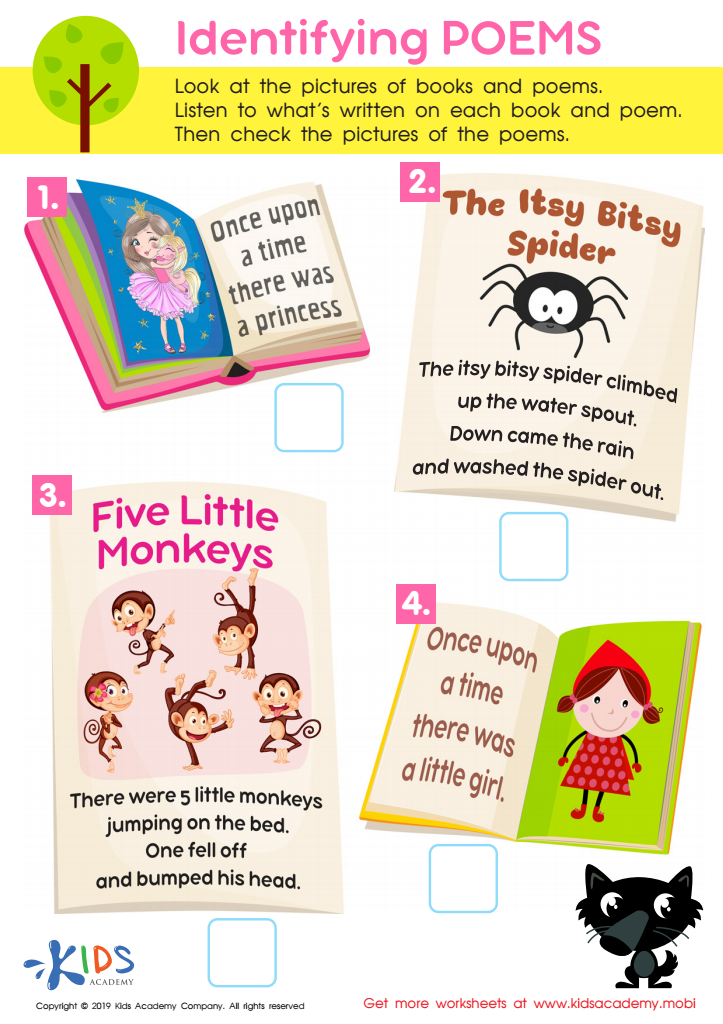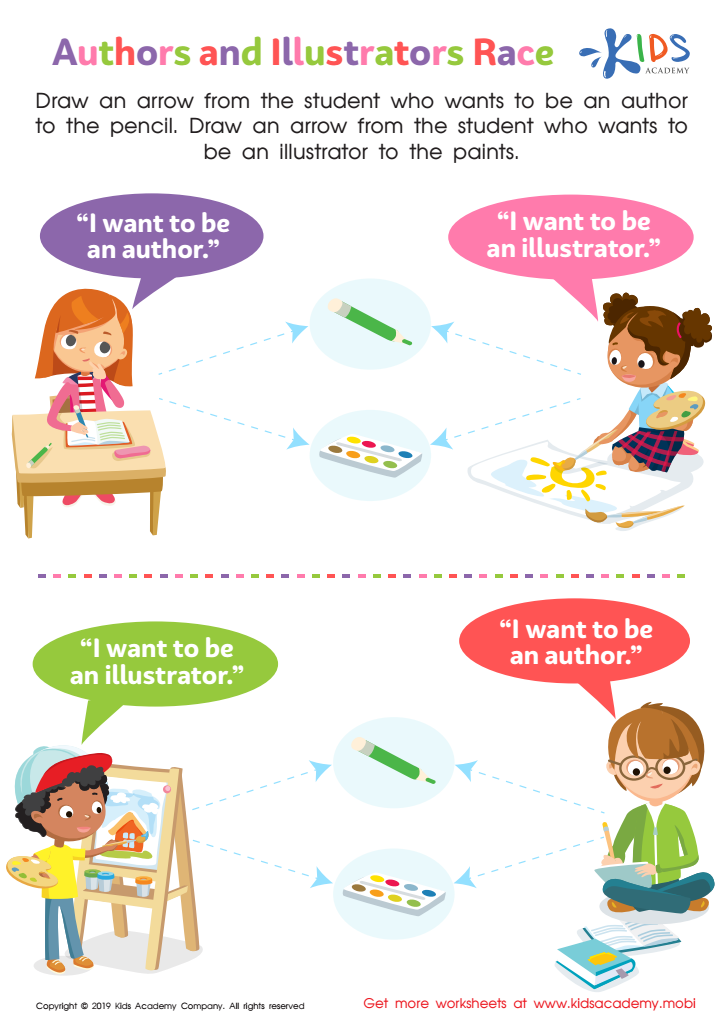Understanding literature Worksheets for Kids
2 filtered results
-
From - To
Understanding literature worksheets help master literary analysis. Ideal for literature students or avid readers, they offer a structured way to enhance critical thinking and analytical skills. Covering character development, theme, and plot, they allow for deeper exploration of texts. Encouraging active reading, they improve comprehension and reveal hidden meanings. Exercises boost vocabulary, writing, and creativity while promoting analytical reasoning. Learners identify patterns, symbols, and interpret devices, gaining insight into classic literature and language abilities. These tools guide users to discover literature's hidden treasures.
(Characters count: 700)


Identifying Poems Worksheet


Authors and Illustrators Race Worksheet
Question/Answer
What are some effective activities to train students’ Understanding literature skill when teaching them about Reading Fiction?
Effective activities for training students in understanding literature while reading fiction include: group discussions to explore themes and character development, literary analysis essays to deepen textual comprehension, creative writing exercises to foster empathy with characters, role-playing to enact scenes for better grasp of plot dynamics, and using graphic organizers to map out story elements such as setting, plot, and conflict resolution.#$%
How does the mastery of the Understanding literature skill affect a student's performance at an early age?
Mastery of the Understanding literature skill at an early age significantly boosts a student's reading comprehension, critical thinking, and empathy. It enhances vocabulary and writing skills, improves concentration, and stimulates imagination. This foundation contributes to better academic performance across subjects, promotes a lifelong love for reading, and equips students with essential communication and analytical skills for future success.
Why is the Understanding literature skill important for Kindergarten students?
Understanding literature is important for kindergarten students as it lays the foundation for reading comprehension, critical thinking, and empathy. It helps them develop language and vocabulary skills, encourages imagination, and introduces them to diverse cultures and perspectives. Early engagement with literature also fosters a lifelong love for reading, contributing to academic success and personal growth.

 Assign to My Students
Assign to My Students





.jpg)













